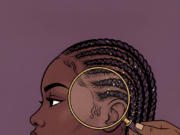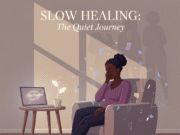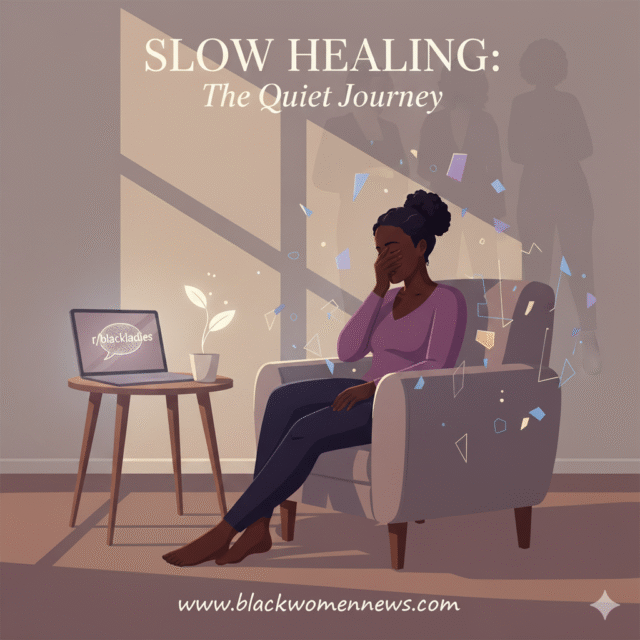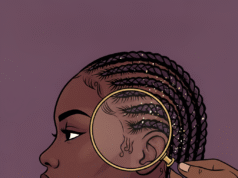For many Black women, healing isn’t a linear path, nor is it a public performance. Instead, it’s a quiet, often solitary journey that pushes back against the cultural expectation of endless resilience. The “Strong Black Woman” stereotype, while rooted in respect for endurance, sometimes becomes a cage—where expressing pain feels like a betrayal of strength. In communities like Reddit’s r/blackladies and r/TrueOffMyChest, Black women share their raw, unfiltered experiences of slow healing, offering an intimate glimpse into a process many feel pressured to rush or hide.
One user poignantly captures this feeling: “I dedicated five years to supporting him… Meanwhile, I feel like I’ve reached my heaviest and least confident state. Healing feels insurmountable right now.” This quote reveals the emotional exhaustion beneath the surface strength and the frustration and loneliness that accompany prolonged healing.
Slow healing pushes back against the narrative that strength means bouncing back immediately. Instead, it recognizes healing as fragmented, unpredictable, and deeply personal. It allows for tears, setbacks, silence—and most importantly, space. Many Reddit contributors speak of rejecting the pressure to “get over it” or display wellness for others’ approval:
“Sometimes healing means just being quiet, not explaining yourself, and stepping away from everything that reminds you of trauma,” shares another voice from r/BlackWomen. Here, silence is not absence but a radical form of self-care. It’s a quiet quitting of trauma’s demands—a refusal to continue investing emotional labor in surviving on trauma’s terms.
This quiet quitting isn’t about giving up; it’s about reclaiming energy. As one user writes, “I stopped trying to be everything for everyone and started trying to just be okay with me, even if that meant healing slowly.” This sentiment echoes a growing movement among Black women to prioritize self-preservation over societal expectations of constant giving and caregiving.
The communal aspect of healing is also crucial, yet it can be hard to find. “I want to talk about my pain, but I’m scared of being a burden. I end up healing alone, afraid my struggle will push people away,” confesses another Redditor. This highlights the isolation many face, compounded by cultural stigmas around expressing vulnerability.
Healthcare distrust and stigma around mental health add layers to this isolation. Yet, there is resilience in finding alternative healing routes—whether through spirituality, ancestral wisdom, or chosen communities. As one comment reads, “My healing started when I embraced rituals handed down by my grandmother and found a tribe that understands me.”
Ultimately, healing as power redefines strength beyond endurance to include vulnerability, patience, and self-acknowledgment. As one Reddit contributor sums it up: “Healing slowly isn’t failure; it’s me holding space for my heart to grow at its own pace.”
For Black women navigating slow healing, this conversation is a balm—a reminder that strength and vulnerability coexist, and that sometimes, the most powerful act is to heal quietly, on one’s own terms.















